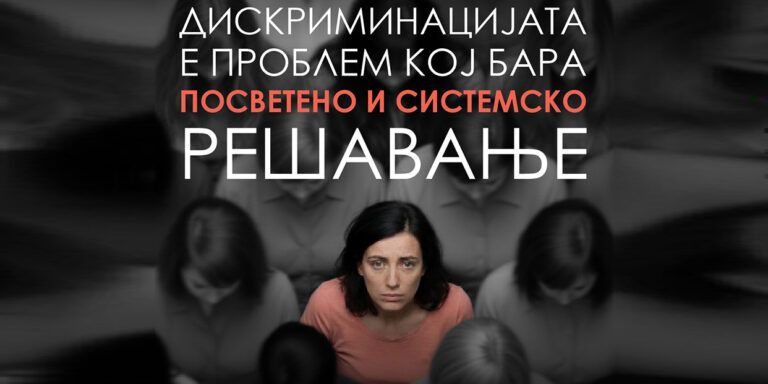Local Government Openness Index: The most open municipality is Bitola, the most closed is Sopishte
“What is important is to ensure visible access to services, along with contacts that will help citizens, so they can be informed about where to get assistance when using a service. Citizen contact offices are also an important tool, as well as electronic tools, informers, and social media,” emphasized Mila Josifovska Danilovska, Program Manager at Metamorphosis.

In North Macedonia, the most open municipality is Bitola, and the most closed is Sopishte. The difference between these two municipalities is significant, amounting to a full 60%. This shouldn’t be the case, as every municipality has the same responsibilities towards its citizens, and every citizen has the right to access information and services. These are the findings of the latest Local Government Openness Index for 2024, presented today at the Civic Resource Center, organized by the Metamorphosis Foundation, Rural Coalition, and Social Innovation Center Blink 42-21.
At the thematic forum “Engaged Community for Corruption Resilience,” held in a full hall, good practices and challenges for more transparent local governance were discussed to increase citizen trust and eradicate corruption.

Opening remarks were given by Aleksandar Krzalovski, National Team Leader of the Civica Mobilitas Program and Director of the Macedonian Center for International Cooperation, and Bardhyl Jashari, Executive Director of the Metamorphosis Foundation. The Local Government Openness Index results were presented by Mila Josifovska Danilovska, Program Manager at the Metamorphosis Foundation for Internet and Society. Other speakers included Liljana Jonoski, Director of Rural Coalition, and Toni Konjanovski, Mayor of Bitola.
“The analysis showed that the most open municipalities are Bitola with 67%, Delchevo with 66%, Demir Hisar with 64%, Veles with 60%, and Valandovo with 59%, while the most closed municipalities are Sopishte, Studenichani, Krivogashtani, Rosoman, and Shuto Orizari. If we compare the most open and the most closed municipality, we see a significant difference of 60%. This shouldn’t be the case, as every municipality has the same responsibilities towards citizens, and each citizen has the right to access information and services that affect their lives,” said Mila Josifovska Danilovska.
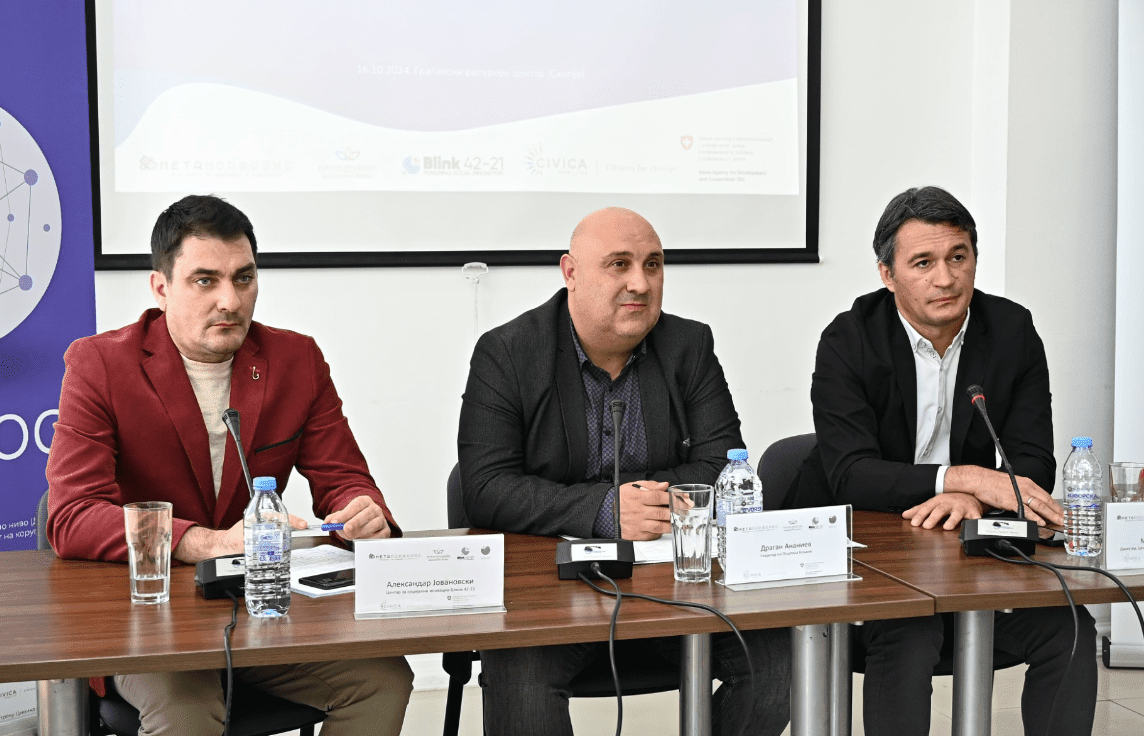
Municipal openness is measured by four parameters: transparency, awareness, accessibility, and integrity. The most transparent municipalities according to the 2024 Openness Index are Berovo, Veles, Valandovo, Delchevo, and Bitola, while Sopishte is the least transparent. In terms of awareness, which refers to the quality of planning, programming, monitoring, and evaluation of local policies, Gevgelija is the most aware municipality. As many as 20 municipalities do not publish any information related to “awareness.”
“What is important is to ensure visible access to services, along with contacts that will help citizens, so they can be informed about where to get assistance when using a service. Citizen contact offices are also an important tool, as well as electronic tools, informers, and official social media profiles of the municipality,” added Josifovska Danilovska.
The director of Metamorphosis, which this year celebrates 20 years of existence, Bardhyl Jashari, emphasized that promoting digitalization and using it to improve citizens’ quality of life is a central focus of all the organization’s activities.

“In these 20 years, we have worked on building the capacities of state institutions and organizations, conducting many analyses of e-services available in our country. The needs of citizens are often neglected, so we must make the benefits of digital transformation tangible. Digitalization helps reduce corruption, but it is not an end in itself, rather it is part of a broader vision and can significantly contribute,” Jashari emphasized.
The Mayor of Bitola, Toni Konjanovski, whose municipality was shown to be the most open according to the analysis, stated that regardless of high-level politics, what touches citizens the most is local governance.
“Being the most open municipality motivates us to be even better. We will seriously study the analysis you presented to improve further. We have an obligation to make local governance transparent and accountable. It is an honor and pride to work for local governance, to be open and accessible to citizens. Through me and my image, they see transparency and accessibility,” said Konjanovski, emphasizing that cooperation with civil society organizations is essential for addressing citizens’ needs.

Milan Tancevski, Director of the Social Innovation Center Blink 42-21, and Dragan Ananiev, Secretary of the Municipality of Kochani, spoke about digital transformation at the local level, as well as the digital tool mCommunity.
The forum aimed to encourage action against corruption, bringing together representatives from local governments, civil society organizations, activists, experts, citizens, and the media in a united fight based on inclusiveness and collaboration.
The thematic forum “Engaged Community for Corruption Resilience” was organized as part of the project “Digital Transformation at the Local Level (DIGILOK) – Engaged Community for Corruption Resilience,” financed by the Government of Switzerland through Civica Mobilitas.


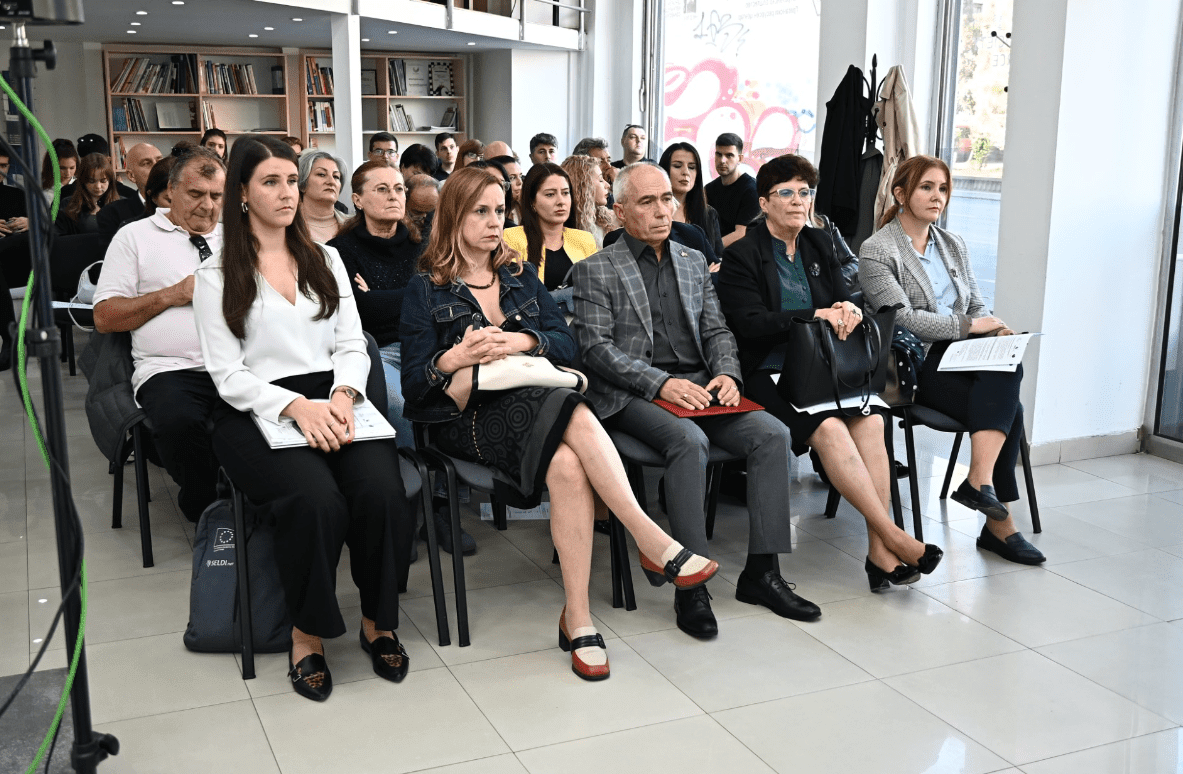

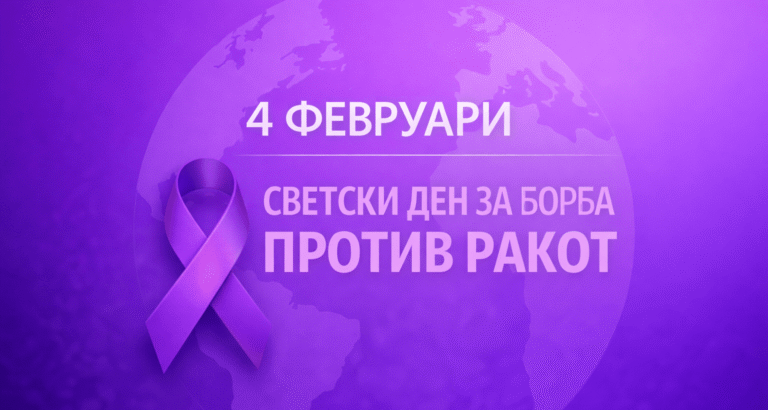

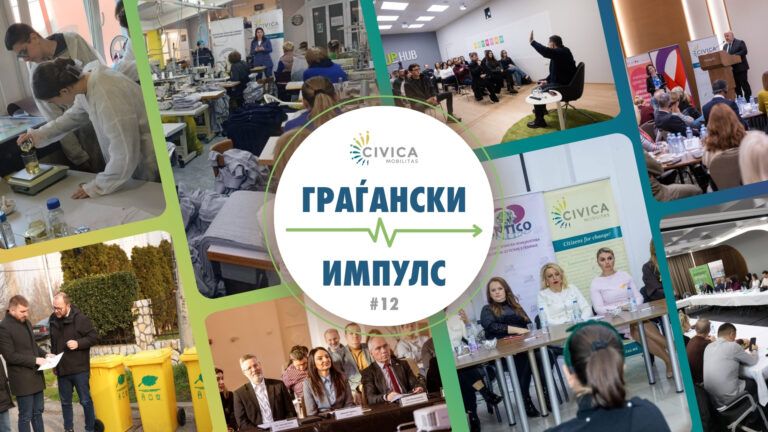
![Sre]ni praznici(2)](https://civicamobilitas.mk/wp-content/uploads/2025/12/sreni-praznici2-768x432.jpg)
